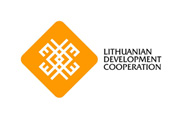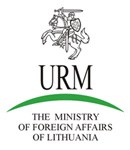
The latest wave of migration that the European Union is currently struggling to cope with is a result of several years of passivity of the international community in addressing the sources of conflict in Syria, when faced with the humanitarian catastrophe and instability in the wider region.
The main cause of the current situation in Syria - the protracted civil war, refugees, IDPs, insurgents, and flourishing ISIL - is Al-Assad regime and the atrocities it has committed against its own people. International actors who had influence with Syria were not willing to interfere or stop the crimes, instead choosing to deal with more immediate internal challenges.
At the UN, decisions against the Syrian government were blocked by Russia, which has been a staunch ally to the Assad regime. Putin`s support both prevented the international community from doing more in Syria and encouraged Assad to continue bombing his own people. Now that Putin has started a military offensive in Syria, targeting those resisting Assad, it is clear that the situation in the region will only become worse, leading to an even larger exodus which will put even more pressure on Europe.
Another issue is that the EU Member states have paradoxically decreased their contributions to the humanitarian aid programs in Syria. The EU Member states were also not willing to adopt military solutions to stem migrant-smuggling across the Mediterranean Sea at the source, ending up with much more dramatic and painful task of dealing with human tragedies at the sea and with having to deal with influx of refugees on the European shores.
The migration influx is a European as well as a long-term problem. So the solutions must be both long-term and European.
Firstly, the EU should finally voice its firm position towards the mess that is being created by Russian military action in Syria. The EU as a global player must decide together with its partners what it can do to stop the bloodshed.
The EU must provide all the support needed to the countries outside Europe, who are hosting a far larger numbers of refugees, and must work together with those countries and international partners to fight the versatile business of smuggling migrants.
Solidarity among the Member States is crucial; however, the solutions must be durable. It is not about a mere distribution of the number of refugees to be taken by the Member States. While on one side the EU should provide protection and asylum for those who need it, protection shouldn’t be traded for the security of EU borders.
We need solutions for our common external border. First of all, there is a need for the ability to react rapidly to changing situations along the entire perimeter of the EU external border, and to respond with an increased capacity and resources exactly where it is needed. Both a strengthened mandate and more means should be given to EU institutions involved in external border protection.
As regards to our national efforts, I think that the Lithuanian government is not leading the preparations for an integration of refugees properly. With a lack of clarity, the institutions that will have to cope with the long-term integration of refugees are not prepared for the scope of the task. We have to make decisions on how to integrate refugees into our culture and society, provide all support needed, opportunities for decent work and study, and living in conditions of peace and democracy. In this case our gains will help society as a whole; but if our institutions fail, it will also affect public perceptions. Countries like ours will have to learn a lot by doing, but it is up to us to seek the best practice examples from more experienced countries, like the Nordic states.
On the international security level, it must be understood that neither Assad nor Putin will solve the problem, that they are in fact a part of the problem. We need the strategic boldness to take decisions that will ensure that international norms and agreements are upheld. International law is nothing without international justice. Therefore, it is important to continue collecting evidence of war crimes in Syria, and ensure that when the UN Security Council is considering its response to international crimes, no member will be able to block it with a veto.
Gabrielius Landsbergis is the member of the European Parliament from the European People’s Party Group, he is the Chairman of the Conservative Party of Lithuania

 RSS
RSS Mobile
Mobile Twitter
Twitter Facebook
Facebook



